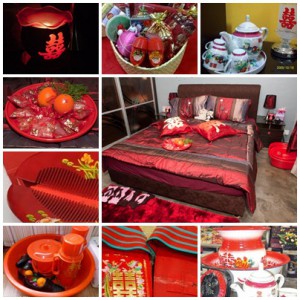Context & Analysis
The subject and I exchanged stories of our family’s traditions while sitting in a class discussion. She mentioned that she and her family were from Ethiopia, so I asked her if she knew of any unique Ethiopian traditions that westerners might not be familiar with. She provided me with an overview of traditional Ethiopian weddings gathered from the ones she and her family attend on a (mostly) yearly basis. She emphasized how many of the ritualistic parts of the wedding preparation are altered or substituted depending on each family’s preferences or personal ties to the country. The transcription is a little disjointed at times because the subject attempted to recount a variety of wedding traditions encapsulated in the ceremony. It was quite interesting to hear a younger woman’s take on these traditional ceremonies.
Main Piece
“So…for Ethiopian weddings…it’s like a, um, a couple days long process—actually it can take up to a month usually. I have 8 aunts on my mom’s side so—and I’ve been alive and I’ve missed three weddings—so every single summer someone is getting married. So like the whole summer we go back to Ethiopia or we travel back to where they are and so actually…there’s a process you do when you have your weddings. So first there’s the, uh, bride’s family celebration and they wash the bride’s feet in honey and milk and, um, they do all her makeup and beauty and stuff and they’ll like play this game there where the groom tries to break in [to the room the bride is in] and they’ll be like “No you can’t be in there!” [laughs], and that’s pretty cool. And these things are mostly ritualistic, like you’re not actually pouring milk on the bride’s feet but some people do. I’ve been to a couple of weddings where people have, um, and that is traditionally the night before the wedding. And the day of the wedding it’s—with my family it’s a lot of pictures and posing. I know with traditions they have the husband—the groom—has to kill a bull, or like a goat, and they cook it for dinner, like the wedding dinner. Like in most American ideas of [a traditional Ethiopian] wedding this happens but it’s like miming, which is like kind of a new tradition, um, but yea. There’s a huge selection of Ethiopian foods and a huge section of raw meat, that’s a thing that people eat a lot, and afterward you have a big dinner the day after which is the bride and groom’s first big party together, hosting like their friends and family. And it’s basically everyone goes over during the day—it’s not like a nighttime celebration—um, and then after that (I cannot remember the name of it). It’s just the bride and groom’s parents and they serve them dinner for the first time, like as a couple, um, in their own house. There’s a lot of ritual of, like, respecting your elders and stuff.”

